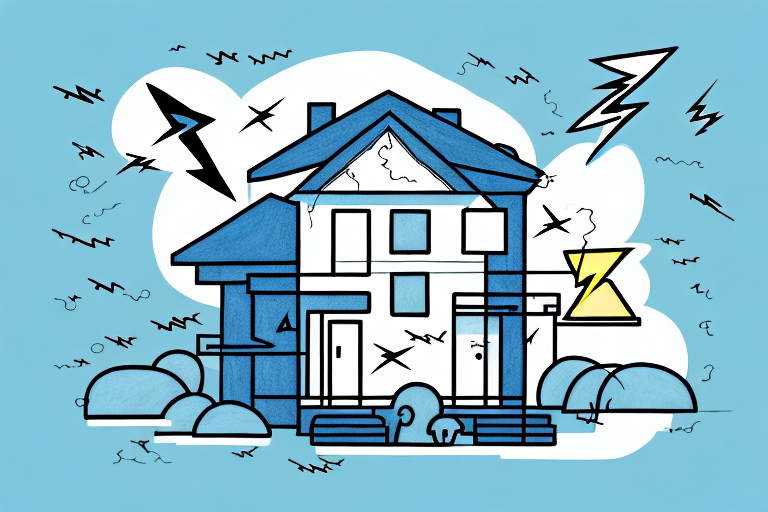Trim Your Monthly Expenses
One of the easiest ways to save money is to review your monthly expenses and identify areas where you can cut back. For example, utility bills can often be reduced by minimizing energy consumption. Turning off lights and appliances when not in use can lead to significant savings. Additionally, shopping around for better cable and internet deals can help you find more affordable options.
Consider canceling subscriptions or memberships that you no longer use. Services like CNET often provide insights on which subscriptions are worth keeping based on usage and value.
Save on Food and Groceries
Food costs are a major part of any household budget. Planning your meals in advance and buying groceries in bulk can help reduce these expenses. According to the Bureau of Labor Statistics, meal planning can decrease grocery spending by up to 20%.
- Buy Generic Brands: Opt for store-brand or generic products which are often cheaper and similar in quality to name-brand items.
- Use Coupons and Cashback Apps: Utilize platforms like Coupons.com or Cashback Apps to save on your purchases.
- Shop Seasonal Produce: Buying fruits and vegetables that are in season can save money and ensure fresher options.
Additionally, cooking at home more frequently instead of dining out can lead to substantial savings. Preparing meals allows you to control ingredients and reduce costs significantly.
Reduce Utility Bills
Utility expenses, including electricity, gas, water, and trash, can take a big chunk out of your budget. Implementing energy-efficient practices can lead to significant reductions. Simple measures like turning off lights when not in use and using Energy Star rated appliances can lower your bills.
- Install a Programmable Thermostat: According to the U.S. Department of Energy, programmable thermostats can save homeowners up to 10% on heating and cooling bills.
- Seal Air Leaks: Properly sealing windows and doors can prevent energy loss, contributing to lower utility bills.
- Use Low-Flow Fixtures: Installing low-flow toilets and showerheads can reduce water usage and lower your water bills.
Cut Transportation Costs
Transportation expenses, such as gasoline, car insurance, and maintenance, can be significant. Here are ways to reduce these costs:
- Use Public Transportation: Utilizing buses, trains, or subways can decrease reliance on personal vehicles, saving money on gas and maintenance.
- Carpooling: Sharing rides with others can effectively cut down on fuel expenses.
- Regular Vehicle Maintenance: Keeping your car well-maintained improves fuel efficiency and prevents costly repairs in the future.
Additionally, considering alternative modes of transportation like biking or walking not only saves money but also promotes a healthier lifestyle.
Cost-Effective Home Improvements
Improving your home doesn’t have to break the bank. Focusing on DIY projects can save labor costs and allow you to personalize your space affordably.
- Energy Efficiency Upgrades: Installing energy-efficient light bulbs, improving insulation, and sealing air leaks can reduce utility bills in the long run.
- Repurpose and Recycle: Before purchasing new materials, see if you can repurpose existing items or use recycled materials for your projects.
- Prioritize Projects: Addressing essential areas first, like fixing leaks or updating outdated plumbing, can prevent larger expenses later on.
By taking a strategic approach to home improvements, you can enhance your living space while managing costs effectively.
Smart Vacation Planning
Vacations are a great way to relax but can be expensive. Here are strategies to enjoy vacations without overspending:
- Travel Off-Season: Visiting destinations during off-peak times often results in lower prices for flights and accommodations.
- Choose Budget-Friendly Destinations: Selecting destinations with a lower cost of living can reduce overall travel expenses.
- Use Travel Rewards: Utilizing travel rewards credit cards can help you earn points or cashback for flights, hotels, and other travel-related expenses.
- Book in Advance: Planning and booking your trips ahead of time can secure better deals and prevent last-minute price hikes.
Effective Budgeting and Savings Strategies
Creating and maintaining a budget is crucial for long-term financial health. Here’s how to establish a budgeting plan that works:
- Track Your Expenses: Use budgeting tools or apps to monitor where your money is going each month.
- Set Savings Goals: Define clear financial objectives, such as building an emergency fund or saving for retirement.
- Automate Savings: Automatically transferring a portion of your income to savings accounts ensures consistent contributions.
Additionally, planning for retirement early and contributing regularly to retirement accounts like 401(k)s or IRAs can set you up for financial stability in your later years.
Additional Money-Saving Tips
Beyond the main strategies, consider these additional tips to maximize your savings:
Negotiate Lower Bills
Don't hesitate to negotiate with service providers for better rates. Companies often have customer retention departments that can offer discounts or customized plans to keep your business.
Dining Out Smartly
When eating out, opt for lunch specials, join loyalty programs, and take advantage of happy hour deals. These choices can significantly reduce dining costs.
Utilize Coupons and Promo Codes
Before making purchases, search for coupons or promo codes on websites like RetailMeNot or Groupon. Signing up for newsletters from your favorite retailers can also provide exclusive discounts.
Maximize Cashback Programs
Enroll in cashback programs for your regular purchases. Combining cashback with coupons and promo codes can enhance your overall savings.
Save on Clothing and Accessories
Buy from thrift stores, consignment shops, or online marketplaces to save on clothing. Opting for timeless styles that can be mixed and matched allows you to expand your wardrobe without overspending.
DIY vs. Hiring Professionals
Evaluate whether a task is suitable for DIY or if hiring a professional is more cost-effective. While DIY can save money, some tasks require expertise to avoid costly mistakes.
By implementing these cost-saving ideas, you can effectively manage your finances, reduce expenses, and work towards achieving your long-term financial goals.




















